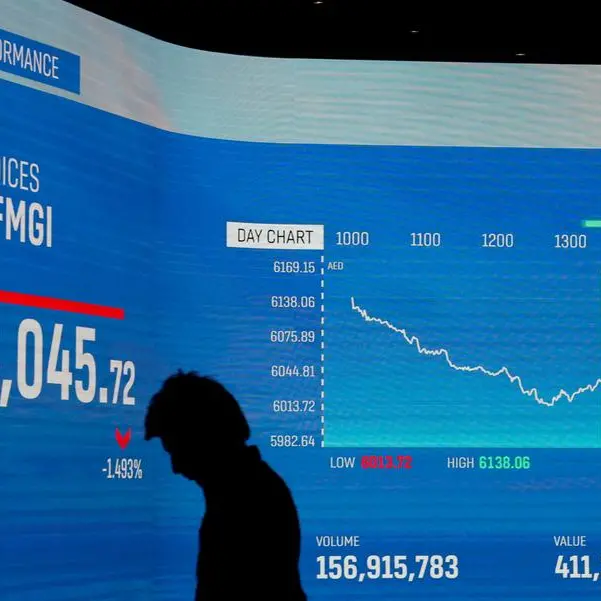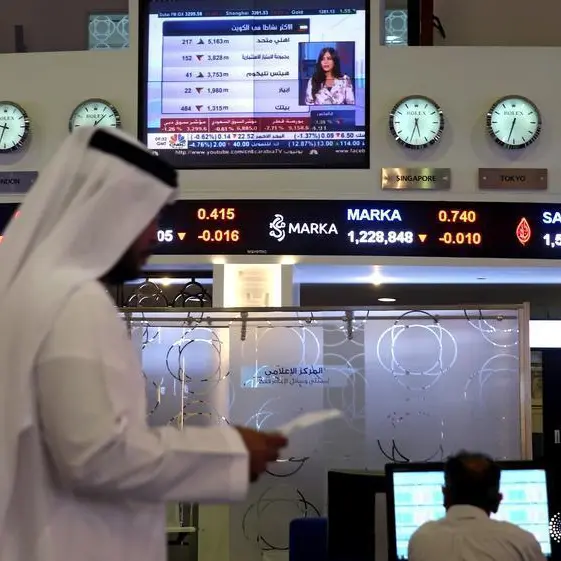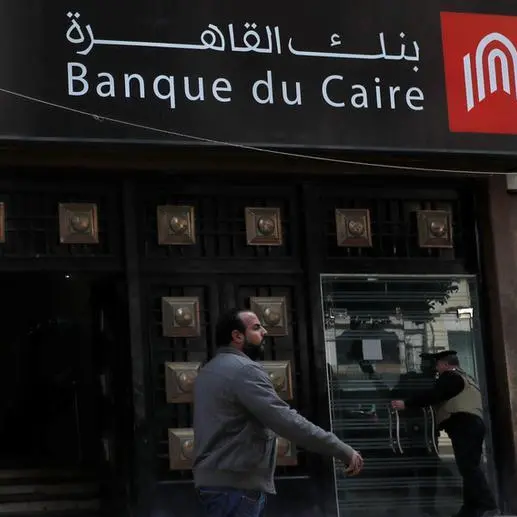PHOTO
LONDON - The euro fell on Monday as a threat from France's far right to collapse its government kept European markets under pressure, while tech stocks lifted global shares and the dollar firmed in a key week for the U.S. interest rate outlook.
The U.S. currency got an additional boost from U.S. President-elect Donald Trump at the weekend, who warned BRICS emerging nations against trying to replace the greenback with any other currency.
France's far-right National Rally (RN) party has given Prime Minister Michel Barnier until Monday to yield to the party's demands for concessions in his proposed budget or face the possibility of RN backing a no-confidence motion against his government, which would lead to its collapse.
The euro headed for its biggest one-day drop in a month, while French stocks fell sharply, pushing the Paris CAC 40 down by 1% on the day.
The country's bonds did not come under fire, although they did lag the rest of the fixed income market, meaning that the premium that France must pay to borrow from the international markets rose.
"France is not great. It doesn't make you want to buy, basically. So that's (affecting) the equity side and maybe the euro side, but the idea that France is on the verge of having this major debt stress, for now, is not what we're seeing," Lombard Odier economist Samy Chaar said.
The premium, or spread that investors demand to hold French rather than German sovereign bonds - widely considered the benchmark for Europe - burst above 80 basis points for the first time since the 2012 euro zone debt crisis back in June.
That resulted from a dismal result in European parliamentary elections prompted President Emmanuel Macron to call snap elections that resulted in Barnier's fragile coalition government.
On Monday, that spread was around 83 bps, some 3 bps wider on the day but below last week's 12-year high of 90 bps.
The euro was down 0.6% at $1.0513 against the dollar.
If the Barnier government falls, broader downward pressure on the euro would quickly re-assert itself, including against the Swiss franc, said Paul Mackel, global head of FX research at HSBC.
DOLLAR HOLDS FIRM
Beyond France, global stocks edged up, leaving the MSCI All-World index up 0.1%, while U.S. stock futures were down 0.1-0.2% , suggesting a modestly lower start following Friday's holiday-shortened session in which the major indices scored record-high closes .
The Federal Reserve is in sharp focus and Friday's monthly payrolls report could be the deciding factor when policymakers' consider whether or not to cut rates again on Dec. 18.
A number of Fed officials are due to speak this week, including Fed Chair Jerome Powell on Wednesday. Traders put the odds of a quarter-point reduction at about 66%.
That has left the dollar index, which measures the currency against six others, up 0.25% at 106.31, having gained 1.8% in November.
In Asia, Chinese shares got an additional boost from a robust reading in a private manufacturing survey on Monday.
Hong Kong's Hang Seng inched up 0.16%, while mainland Chinese blue chips rose 0.6%.
The yen, meanwhile, weakened 0.2% to 150.065, but remained near Friday's six-week high of 149.47.
In cryptocurrencies, ether hit a near six-month high of $3,762.20 earlier in the day but pared those gains, falling 2.5% to $3,610. Bitcoin was last down 2.7% at $95,173, still in sight of late November's record high at $99,830.
Gold sank 0.7% to $2,635 an ounce, under pressure from the strong dollar, after sliding more than 3% in November, its worst monthly performance since September 2023.
Oil prices rose after the Chinese manufacturing data, and as Israel resumed attacks on Lebanon despite a ceasefire agreement, which stirred up concern about potential supply disruption from the region.
Brent crude futures were up 0.8% at $72.42 a barrel, while U.S. crude was up 0.78% at $68.54.
(Additional reporting by Kevin Buckland in Tokyo and Ankur Banerjee in Singapore; Editing by Kate Mayberry, Shri Navaratnam, Ed Osmond and Jan Harvey)





















